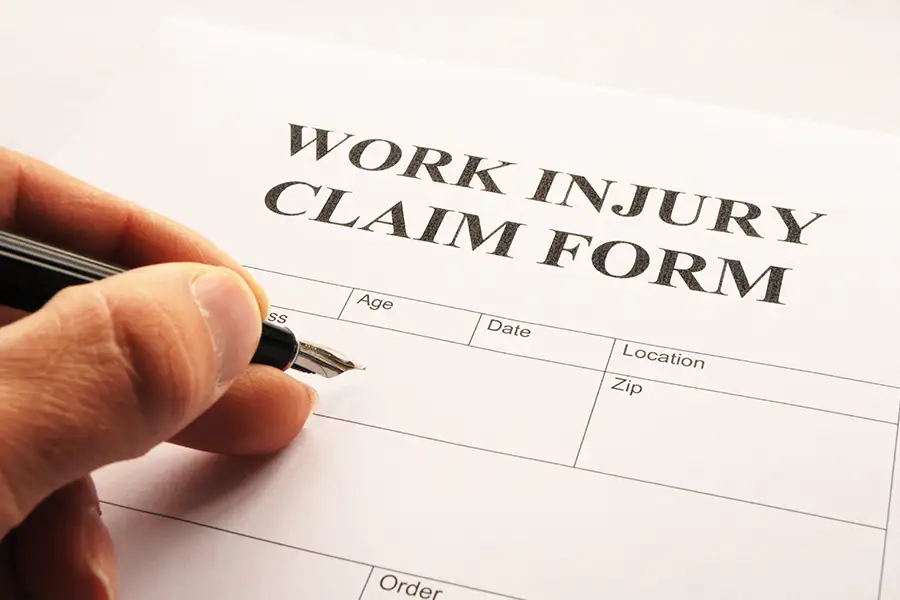
Independent Contractors & Colorado Workers’ Comp Benefits
How to get compensation if you’re injured working as an independent contractor in Colorado
According to recent data, the number of independent contractors more than doubled from 15.8 million in 2020 to 31.9 million in 2022. Choosing when, where and how you work are just some of the perks of being your own boss.
However, drawbacks of working in a gig economy include no sick days, no vacation pay, no workers’ compensation benefits, no employer-funded health insurance and no employer contributions to retirement plans. Thus, freelance workers often work longer hours in order to compensate for these losses.
Common independent contractor jobs
The wide range of occupations held by independent contractors include the following:
- Truck drivers
- Construction workers
- Taxi and rideshare drivers for Uber and Lyft
- Delivery drivers and couriers
- Accountants
- Consultants
- Freelance writer
- Web developer/programmer
- Tutors
- Massage therapists
- Personal trainers
- Photographers
- Real estate agents
- Security guards
- Stylists
- Tattoo artists
- Landscapers
- Electricians
- Plumbers
- Carpenters
How does Colorado define an independent contractor?
According to the Colorado Department of Labor and Employment, an individual is considered an independent contractor if they’re not controlled or directed by an employer while performing services. These individuals typically provide an independent trade, occupation, profession or business.
Unless otherwise stipulated, individuals are considered independent contractors when there is a written document or contract agreeing to provide specified services.
Choosing the Right Colorado Workers’ Compensation Attorney
Tips for finding the best Colorado work injury attorney after an on-the job accident.
The independent contractor 3 factor test
Sometimes, the differences between an employee and an independent contractor are not clearly understood. The confusion poses a risk for business owners who may inadvertently become victims of errors leading to lawsuits, as well as workers who may be left without workers’ comp benefits after an injury.
So, it is important for business proprietors and workers to understand the distinction under Colorado law. The state of Colorado utilizes 3 factors to differentiate between employees and independent contractors:
- Behavioral test. Workers are considered “employees” if they report to a manager or supervisor who routinely evaluates their job performance. They also typically receive job-related training and are assigned a regular work schedule. Employees must also comply with a designated list of regulations and rules while working.
- Financial test. Workers are considered “employees” if they receive regular pay with taxes withheld by the employer. Employees are also often provided with health insurance paid for by their employer. Additionally, they may also have access to various company resources that are not traditionally provided to independent contractors.
- Relationship test. Workers are considered “employees” if they receive various benefits, often including paid time off for illness and vacations. Employees are also required to perform specific duties and projects, while independent contractors are able to choose which projects they’d like to participate in. Additionally, independent contractors provide a detailed invoice of charges upon completion of a job.
Are independent contractors entitled to workers’ compensation?
Workers’ compensation insurance provides Colorado employees with financial assistance in the event of a work-related injury or illness. The coverage provides qualified workers with monetary awards designed to compensate for incurred medical bills and lost wages. Qualifying workers include full or part-time employees who receive an hourly wage or other type of salary.
However, under Colorado law, the following types of workers are exempt from Colorado workers’ compensation coverage:
- Freelancers and independent contractors
- Sole proprietors
- Real estate agents and brokers
- Domestic workers who work for private households
- Federal employees
- Drivers under a lease agreement with a common carrier
Are self-employed workers required to purchase workers’ compensation insurance for themselves?
In Colorado, most businesses with 1 or more full- or part-time employees are required to purchase workers’ compensation insurance. If you’re an independent contractor and you have no one working for you (other than yourself), you are not required to purchase workers’ compensation insurance.
Legal options for injured independent contractors
Depending on the circumstances of your injury, you may be able to file a personal injury lawsuit against the company you’re working for or a third party, such as the manufacturer of a defective part or a driver involved in an accident. In either case, you’ll need to prove the other party was negligent in order to recover compensation.
If your lawsuit is successful, you may be able to recover compensation for medical expenses and lost wages while you’re unable to work, as well as nonmonetary expenses, like pain and suffering and emotional distress, which are not available through a workers’ comp claim.
An experienced personal injury attorney can help you decide which parties may be liable in your case.
What should I do if I’m injured on the job as an independent contractor?
To be potentially eligible for compensation, independent contractors should follow specific procedures after sustaining a workplace injury:
- Document the accident. Take photos of the scene and get witness statements if anyone was present at the time of the accident. This evidence could be crucial to proving a future claim, whether it be workers’ comp or personal injury.
- Obtain medical care. It’s crucial for the injured contractor to promptly seek medical attention to prevent the injury from worsening. Medical documentation will also establish the connection between the injury and the work-related incident.
- Report the injury. Workers must report the injury to the company they’re working for. Notifying the company within 4 days ensures the possibility of receiving workers’ compensation if it is later determined that the contractor was misclassified.
- Maintain documentation. Keeping records of all receipts, bills, pay stubs, invoices, income statements, and related medical documents is essential. These records will help document lost income if the contractor needs time off to recover from their injury.
- Consult an attorney. Independent contractors should seek the advice of a workers’ compensation attorney who can assess their eligibility for workers’ compensation benefits and provide guidance on other legal options available to them.
What should I do if I think I’ve been misclassified as an independent contractor?
As of 2009, Colorado adopted the Misclassification of Employees as Independent Contractors Act. The legislation is designed to assist workers who may have been wrongly classified by employers.
Workers who believe they’ve been misclassified as independent contractors can file a complaint with the Colorado Department of Labor and Employment’s Division of Employment and Training. Within 30 days of filing a complaint, the Division will determine whether an investigation is necessary.
Employers involved in the complaint must cooperate with investigators and provide all of the requested information. Guilty employers must pay their misclassified workers back taxes and interest. They may also be obligated to provide injured employees with appropriate workers’ compensation benefits.
For the best chance of success, contact an experienced workers’ compensation attorney to help you with the process.
Consult a Colorado work injury attorney
If you’ve been injured on the job in Denver as an independent contractor or as a worker who believes you’ve been misclassified as an independent contractor, you need an experienced work injury attorney who understands the laws in Colorado and can fight to get you the compensation you deserve.
At The Babcock Law Firm, our attorneys are committed to helping injured Coloradans get maximum compensation after an on-the-job injury. Let us handle the negotiations with your employer and their insurance company so you can focus on healing.
Contact us today for a free consultation of your case.



